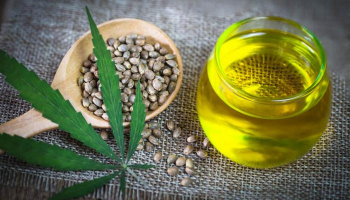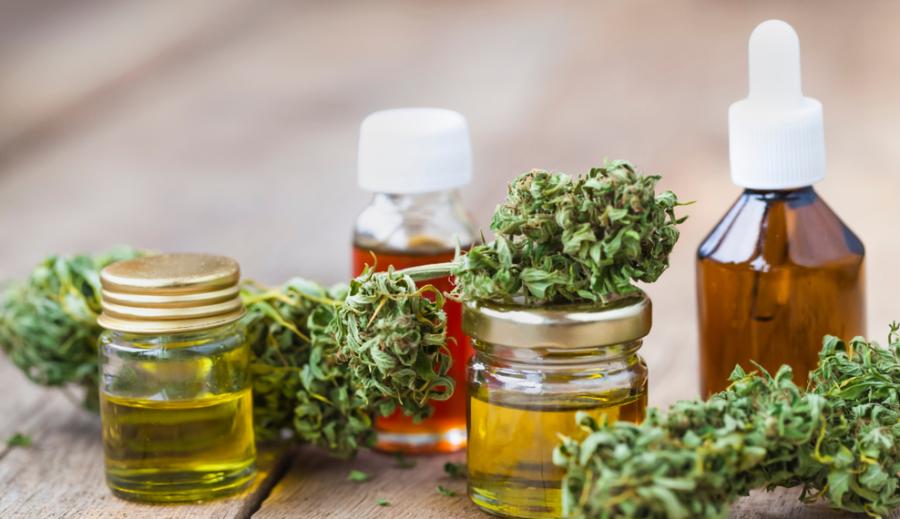
Let’s not beat around the bush – CBD oil has been the talk of the town of late.
What started as a slow-moving and mysterious compound, most often incorrectly thought of as the same thing as marijuana, quickly transitioned into this widely popular solution to a plethora of problems, conditions, and issues.
Particularly within the last two years, there’s been a significant increase as to the testaments of CBD oil and its profound effects on the human body, and even on the bodies of animals.
But CBD oil is only one component, as there is a whole range of hemp-derived products and goods, from medicinal to clothing.
But as with any health trend, it’s important to understand what you’re putting into your body, how it affects your body, how best to use it, and anything else needed to make the best and most informed decisions for you.
In this article, you’ll find some crucial information to help keep yourself informed as to the power and potential of CBD oil.
Interested in buying CBD oil? Check out our ultimate guide to the best CBD oils on the market today.
What is CBD oil?

100% Organic CBD Oil
At Kryo, we’re passionate about the life-affirming properties of CBD—and we’re committed to delivering it in its purest possible form. Discover the wellness benefits of our meticulously sourced, thoughtfully produced CBD tinctures.
Find out more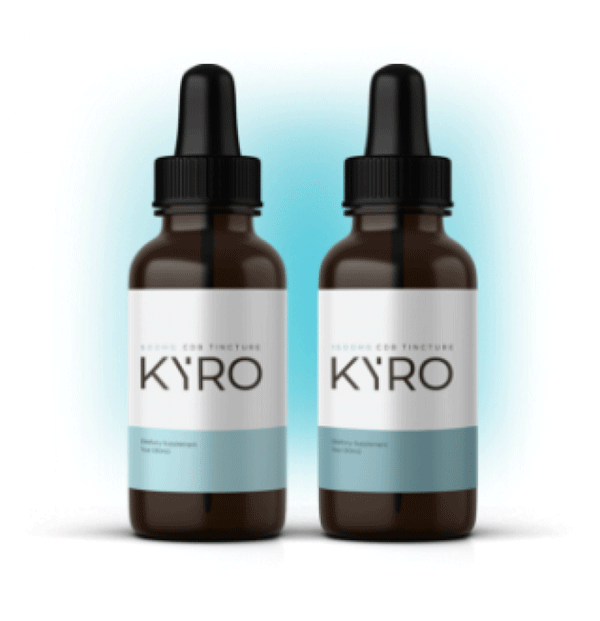
According to Healthcare Weekly Magazine, cannabidiol oil, the full name for CBD, is simply a compound that is extracted from the hemp varietal plant, a plant commonly grown for both its fibers (clothing, textiles, etc.) as well as its seed oil (CBD).
The seed oil extracted from the hemp plant is then used in a variety of goods, topicals, pills, gummies, vapors, etc, for a number of different purposes. Simply put, CBD oil is a naturally grown oil that is extracted from a common plant.
Where does CBD oil come from?
Producers of CBD oil harvest and grow the hemp plants, before preparing for the extraction of the oil from the plant itself.
CBD oil is separated from the hemp plant through one of two methods: alcohol extraction or CO2 extraction.
Many of these farmers harvest the CBD oil as a co-product or byproduct of hemp that is farmed, traditionally for some other intent and purpose.
The by-product (CBD oil) is often distributed to separate sellers or businesses who extract the oil for selling and distributing into other products.
How does CBD oil differ from marijuana?
Marijuana and CBD oil are both components found in the hemp plant varietals.
The main factor distinguishing these two compounds is the presence of THC, or tetrahydrocannabinol, which is the primary psychoactive compound that exists within the marijuana.
While CBD and THC are both found in medical marijuana, CBD oil is a non-psychoactive compound, meaning users do not attain the euphoric “high” feeling that is associated with marijuana, as a result of the THC.
Again, simply put, marijuana produces a chemical high, as a result of the psychoactive compound, while CBD oil does not produce any chemical euphoria whatsoever.
Who uses CBD oil?
CBD oil is used for a wide variety of purposes and treatments, by a wide variety of individuals and consumers.
Though evidence of its healing qualities and properties is more based off of personal testaments.
The hemp extract oil is noted for qualities of healing illnesses, alleviating pain, decreasing stress and anxiety, aiding sleep, promoting body functionality, the treatment of epilepsy, and a wealth of other purposes, detailed further in later sections of this article.
Workplace professionals, athletes, health and wellness professionals, parents, homeopathic individuals, the list of potential users is vast.
Where did CBD oil use originate from?
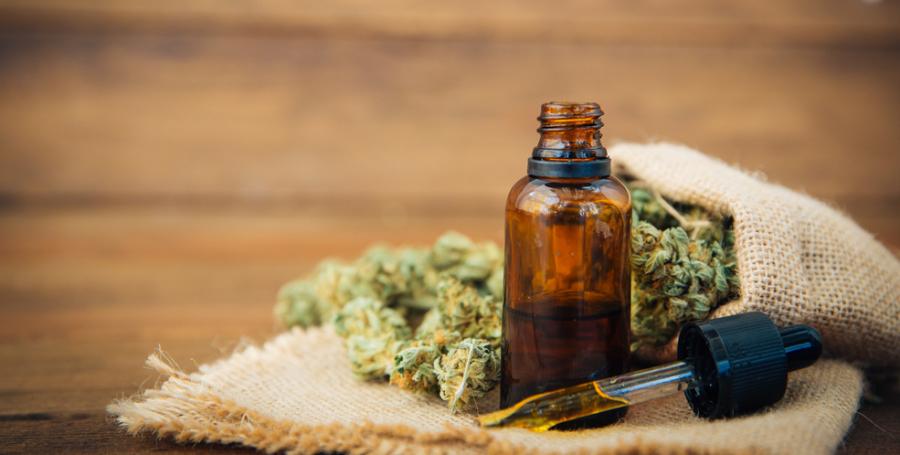
Although the specific medicinal benefits of marijuana became more prevalent within the last decade or two, and the health properties of CBD have become more recognized within the last few years, the use of marijuana as a healing and medicinal plant can be traced back as early as 2737BC.
Over four thousand years ago, it was documented that Chinese emperor Shen Neng used the marijuana leaf in tea form.
This tea was prescribed with the hope of relieving the symptoms of gout, malaria, rheumatism, and memory loss.
In a more modern context, what began as a more therapeutic approach to marijuana, changed into the medical world as more research was conducted, revealing the potential for even greater healing and treatment properties.
Physician and professor, W.B. O ‘Shaughnessy first recognized the potential for marijuana as a potential treatment for seizures.
Chemist, Robert Cahn first discovered the individual cannabinoid structure.
Years later, another chemist, Roger Adams’ research led to the discovery of the two primary components, cannabidiol (CBD) and tetrahydrocannabinol (THC), both of which were previously mentioned as the two primary active ingredients of the marijuana plant.
Banned in the mid 1900’s, the use of marijuana as a medicinal plant finally reemerged in 1996, when California became the first state to legalize the use of marijuana and cannabis for medical purposes and treatments, exclusively under the direction of medical professionals.
How does CBD oil work?

100% Organic CBD Oil
At Kryo, we’re passionate about the life-affirming properties of CBD—and we’re committed to delivering it in its purest possible form. Discover the wellness benefits of our meticulously sourced, thoughtfully produced CBD tinctures.
Find out more
In order to best understand just how CBD oil works (without a chemist’s degree), it’s important to know four basic concepts regarding the human body, first:
- The human body naturally produces its own cannabinoids.
- There are two cannabinoid receptors in the human body, CB1 receptors and CB2 receptors.
- CB1 receptors are in both the brain and the body, while CB2 receptors exist within one’s immune system, instead.
- CB1 receptors deal with coordination, emotions and moods, thinking and memory, and appetite. CB2 receptors deal with inflammation and pain, including digestion, arthritis, allergies, autoimmune disorders, and the like.
When an individual consumes CBD oil, whether as an inhalant, a pill, or some other means of consumption, the cannabinoids that are released into the body direct the body to produce more cannabinoids for the receptors.
While THC specifically binds itself to CB1 receptors, the CBD doesn’t trigger the CB1 or the CB2 receptors, but instead, alters the receptors’ ability to bind to those cannabinoids.
This is part of the explanation for why so many people attest to the healing properties of the compound in a multitude of areas.
How should CBD oil be used?
As with the administration of any pharmacological drug or prescription, the dosage and frequency of the use of CBD oil depends on the individual, their body, and their reasons for using the oil.
Because bodies respond differently to any substance (some people have allergic reactions to cats, others are lactose intolerant, etc) it is important to understand that there is no definitive, one-size-fits-all solution to the administration of CBD oil.
With this in mind, there are important considerations to take when looking at how it is to be consumed.
Traditionally, oral consumption of CBD oil has the lowest rates of acceptance into the bloodstream, because this type of pill form mostly ends up traveling through the stomach and intestines.
Inhalants are among the strongest means of absorption, along with topicals, because they have more direct access and acceptance into the bloodstream. They work quicker, and a smaller dose is more likely to be absorbed.
It’s important to speak to a professional to find out the best means of administration for you. The means and dose also depends on the purpose for taking CBD oil. Speak to a healthcare professional if you have concerns about your own use of CBD.
What are the side effects of CBD?

When it comes to the side effects of cannabidiol oil, it’s important to first understand that the side effects are listed as temporary, minimal, and not severe.
Modern research has shown that these side effects are not permanent, and when compared to the conditions and problems that CBD is being used to treat, many consider it well worth the trade-off.
Some of the more common side effects of CBD use include: changes in appetite or mood, diarrhea, and drowsiness. Additional symptoms can also include, dizziness, dry mouth, nausea, vomiting, and anxiety.
And yet, some of the positive side effects of casual use include the treatment of acne, anxiety, issues with falling asleep or staying asleep, stress, as well as pain and inflammation.
Aside from these more generic benefits of cannabidiol oil, research has started to suggest a wealth of medical issues also benefit from the use of CBD oil, from cardiovascular diseases, epilepsy, ALS, and other conditions detailed further below.
Is CBD legal?
The answer to this question is two-fold, with a complex yes and no.
At the federal level, marijuana and cannabis-infused products are illegal.
However, growing acceptance of the compound for both medicinal and recreational purposes, and has even made its way onto the 2020 presidential race platform.
Regardless of the federal stance, 13 states and Washington D.C. have legalized it, including California and Colorado.
This means that for either medicinal or recreational purposes, depending on the state, it is legal for an individual to utilize marijuana and CBD products.
On the other hand, the Agricultural and Improvement Act of 2018, also known as The Farm Bill, attempted to give more clear guidelines regarding the harvesting, cultivating, and use of hemp CBD oil.
Per the legislation passed just this last year, worked to legalize hemp itself, and allowed for the use of CBD oil, although it cannot contain more than 0.3 percent of THC.
However, there are still significant restrictions regarding the use and production of it.
If a cannabis plant were to contain more than the 0.3 percent THC allowed, it would be classified as non-hemp cannabis, which removes the federal protections placed on it.
As it is, this was a huge step in the right direction for the legalization of hemp and CBD oil.
However, it’s not always clear or easy to find the exact percentage of THC in CBD oil products, which means that those in states like Texas or Florida, who enforce the federal laws prohibiting marijuana, those with CBD oil in their possession do face the potential for legal intervention should the THC level be higher, or even suspected to be higher.
In early May of this year, a 69-year old grandmother was arrested at Disney World in Orlando, Florida, for a doctor-recommended CBD oil bottle that fell from her purse, though she was released from jail without charges.
Similarly, the Transportation and Safety Administration clarified their policy on transporting doctor prescribed marijuana and cannabis-infused medications, to allow such products onto airplanes.
It also clarifies that, “marijuana and certain cannabis infused products, including some Cannabidiol (CBD) oil, remain illegal under federal law, except for products that contain no more than 0.3 percent THC”.
If the local authorities suspect a higher percentage is in a traveler’s possession, that traveler could be charged with possession of a controlled substance.
Know that if you’re traveling, it might be risky, and know the laws of your own state before purchasing and freely using your own CBD oil.
Cannabidiol Oil and Chronic Conditions
When it comes to certain chronic conditions, whether pain, epilepsy, asthma, or one of a number of other conditions, studies have been increasingly directed at assessing the effectiveness of prescribing CBD oil to treat the symptoms.
Here, it’s important to look at a variety of claims and studies in order to best evaluate the potential effectiveness of CBD oil treatment for each individual.
CBD Oil and Pain

When it comes to chronic conditions, pain is identified as one of the top three medical conditions that was reported by CBD users as their reason for use.
In and of itself, chronic pain is described as a persistent pain, pain on most days or every day within the last six months, and can be found anywhere on the body.
During a survey of anonymous CBD users, almost 36% of those users claimed that their use of CBD oil aided their treatment “very well by itself”.
Though extensive studies have yet to be completed on humans, promising studies have shown there to be significant potential for the suppression of chronic inflammatory and neuropathic pain.
As cannabidiol oil is a compound that binds and reacts with CB2 and CB1 receptors, it’s easy to understand how the oil can impact the body.
Especially in a day and age of increased substance abuse and in conjunction with the current opioid crisis, medical practitioners are looking for more responsible ways to avoid opioids when it comes to pain management, and are finding the solution to be with CBD oil.
CBD Oil and Diabetes
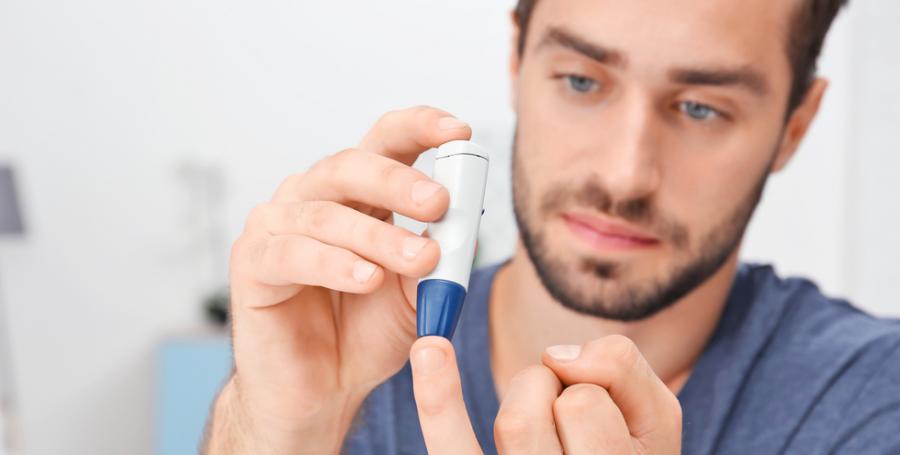
According to a study by the CDC done in 2015, approximately 9.4% of the entire U.S. population (or 30.3 million Americans) have diabetes.
As the seventh leading cause of death (2015), diabetes not only causes premature death, but it also leads to vision loss, heart disease, strokes, and kidney failure, just to name a few.
Though there are two types of diabetes, type I and type II, both conditions present a struggle for individuals and can severely inhibit their quality of life.
During recent studies involving cannabidiol and its impact on type 1 diabetes, in particular, results indicated that the presence of CBD were actually shown to lower the incidence of type 1 diabetes among subjects (non-human) who weren’t already obese.
Because of the CBD’s ability to modify CB1 and CB1 receptors, particularly in the case of immune receptors, the impact on early pancreatic inflammation in cases with type 1 diabetes were significantly reduced during the course of the study.
This research suggests that the CBD in humans with type 1 diabetes could potentially see similar results with regards to the pancreas, diabetes, and insulin levels.
As more of a preventative approach, the potential for CBD to treat type 1 diabetes in particular shows promise.
CBD Oil and Cardiovascular Disease


100% Organic CBD Oil
At Kryo, we’re passionate about the life-affirming properties of CBD—and we’re committed to delivering it in its purest possible form. Discover the wellness benefits of our meticulously sourced, thoughtfully produced CBD tinctures.
Find out more
In the United States, cardiovascular disease is the cause of close to 1 in every 4 deaths.
For this reason, it is a significant and recognizable health threat to many Americans.
Early actions and preventive measures are recognized as having a significant impact on survival rates in this area, whether it be lifestyle changes or simply recognizing the symptoms of a heart attack.
While three key factors contributing to the presence of heart disease include high cholesterol, high blood pressure, and smoking, diabetes, diet, weight, and physical activity are all significant contributors as well.
In the case of cardiovascular diseases, the research is a bit more founded and solid than some other areas of CBD research, likely because of the significant dangers and high death rates related to the disease.
Recent research has indicated that both phytocannabinoids and endogenous cannabinoids can reduce vascular tension, as well as help mediate myocardial infarction and other cardiovascular risk factors, suggesting the potential therapeutic use of CBD to ease the dangers of heart disease.
However, it is worth mentioning that existing research shows discrepancies in the quantities and doses given to test subjects, and the amount needed for vascular changes to occur and the means by which those changes occur.
CBD Oil and Epilepsy

The power of the impact CBD has had on epilepsy, particularly with children, is a large part of the reason it’s been brought to the forefront of the medical conversation.
Although the ability for cannabis to be used as a means of seizure control has long been recognized, the presence of THC largely inhibited the progress of such a treatment until doctors and chemists were able to separate the THC from the CBD.
Just last year, the FDA approved an oral CBD solution for the treatment of two of the rarest and most severe forms of epilepsy in patients two and older.
The two conditions, Dravet syndrome and Lennox-Gastaut syndrome, were so far resistant to other, more traditional forms of anti-seizure medication, attesting to the therapeutic and healing powers of the CBD compound in the human body.
As has been noted by thousands of testimonials, some of the most life-changing impacts of CBD oil with seizures has been with its ability to improve and normalize the lives of children and young adults suffering from the debilitating condition.
CBD Oil and ALS

ALS, amyotrophic lateral sclerosis (also known as Lou Gehrig’s disease) is a degenerative disorder whereby the body physically deteriorates until an individual loses motor neurons and muscular functionality.
Because of the associations of ALS with the central nervous system, recent studies have made efforts to uncover the potential for managing ALS with the use of cannabidiols.
In addition, due to CBD oil’s ability to function as neuroprotective agents, as well as having the ability to delay motor impairment and even to increase the chances of survival, studies show promising results with the ability to slow the degenerative process down significantly.
However, it is important to note that while the potential for symptomatic treatment of ALS has potential, the lack of studies conducted on humans is still limited.
There are still so few reports of individuals with ALS who report having used cannabis or CBD as treatment for their symptoms.
CBD Oil and Lupus
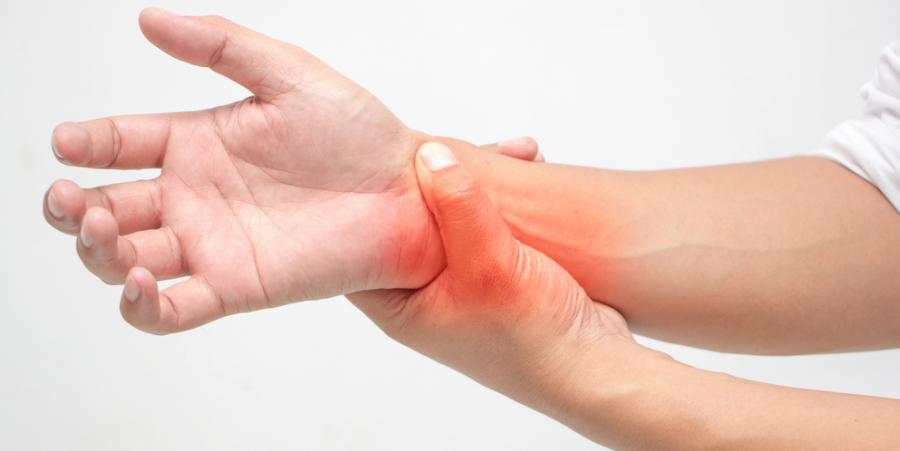
The condition is an autoimmune disease whereby the body cannot identify its own foreign invaders and actual healthy body tissue, whether its skin, organs, or joints, and as a result attacks itself in an often painful and damaging manner.
Currently, in the United States, close to 1.5 million Americans currently suffer from some form of lupus.
While not specifically attesting to the condition of lupus in general, as autoimmune diseases and conditions are particularly challenging to target, the ability for CBD oil to act as a natural anti-inflammatory medication suggests it as a potential treatment for the symptoms and pain associated with lupus.
CBD Oil and Crohn’s Disease

100% Organic CBD Oil
At Kryo, we’re passionate about the life-affirming properties of CBD—and we’re committed to delivering it in its purest possible form. Discover the wellness benefits of our meticulously sourced, thoughtfully produced CBD tinctures.
Find out more
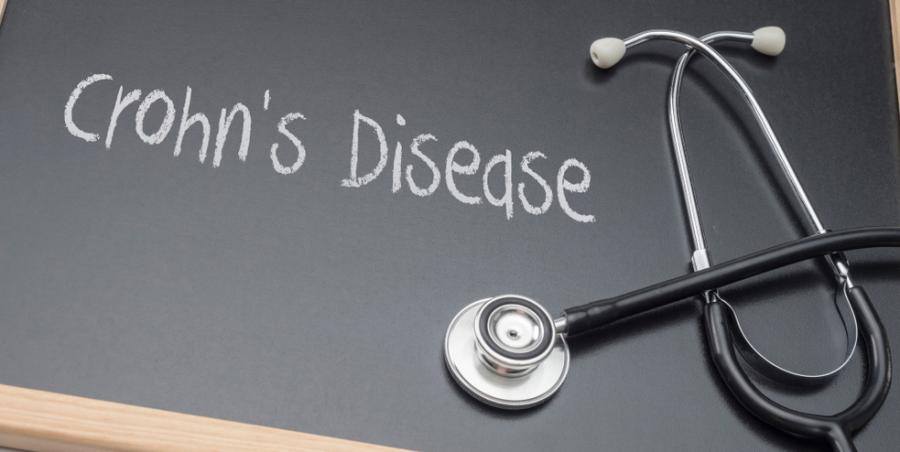
Crohn’s disease is the chronic inflammation and irritation within a patient’s digestive tract, and some of the most common symptoms include stomach cramping and pain, diarrhea, fatigue, malnutrition, weight loss, and inflammation and scarring of the intestines.
As the direction of CBD studies shifts to the direction of gastrointestinal studies, researchers actually managed to conduct tests on two components in the hopes of finding a positive connection between CBD and the human gut: intestinal biopsies from patients with ulcerative colitis as well as the intestines of mice.
Of significant note from these studies was the fact that CBD was documented to counteract the highly inflammatory environment that existed as a result of ulcerative colitis, which lead to a decrease in damage done to the intestinal walls.
All in all, these results showed promising news for future studies drawing a connection between CBD and Crohn’s disease.
CBD and Glaucoma
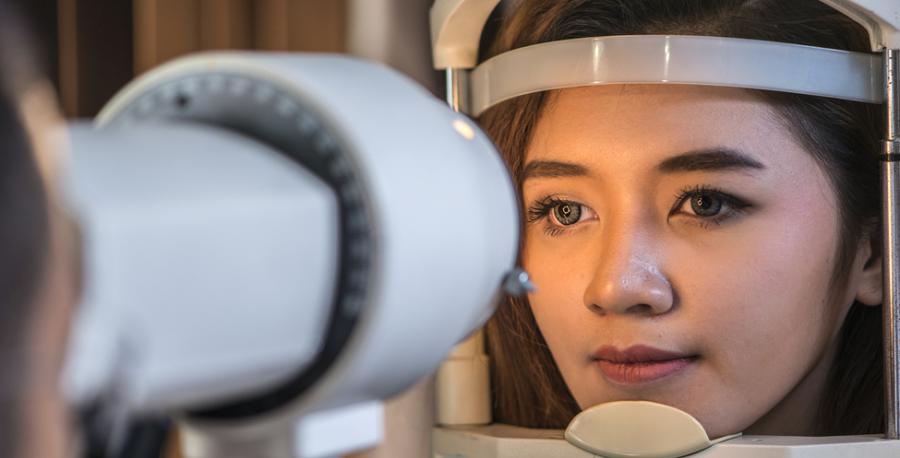
Glaucoma is a medical condition that specifically targets the optic nerves within a patient’s eye. As fluids build up within the front part of the eye, pressure is increased, causing pain, tension, and damage to the nerves.
If left untreated, glaucoma can lead to decreases in vision, or even blindness. Though less common and predominantly found in individuals over 40, the rate in the United States hovers at about 1.9%.
One of the earliest modern day uses of marijuana was actually for the treatment of glaucoma.
More recently, however, studies have started to develop mixed reviews, uncovering that while the THC in marijuana significantly decreases pressure within the eye, CBD might actual lead to an increase in intraocular eye pressure, or make the THC less effective at decreases the pressure.
CBD Oil and Huntington’s Disease
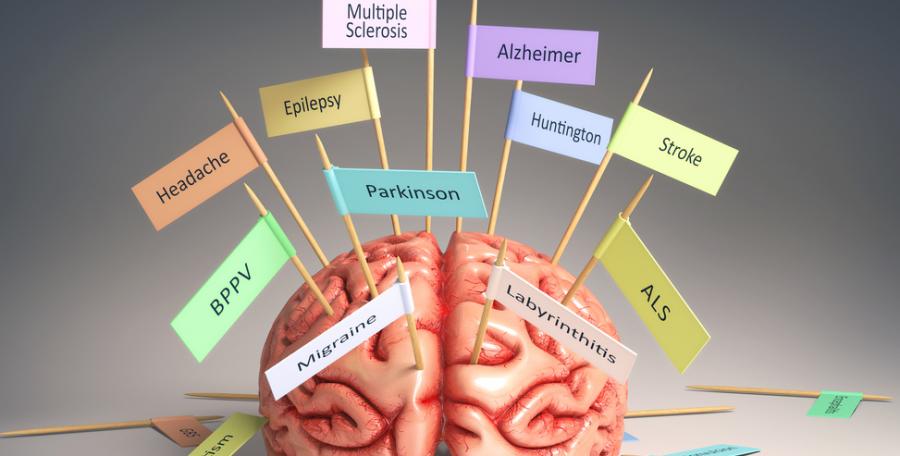
Huntington’s disease is a progressive disease that leads to the breakdown of nerve cells within the brain, eventually leading to loss of motor controls, loss of cognition, and emotional difficulties.
Caused by a genetic mutation within the body, it most commonly appears in an individual’s thirties and forties.
Over time, they begin to lose the ability to walk, talk, eat, drink, and often experience loss of life within 15 to 20 years from the onset of symptoms.
One particular study addresses the potential for CBD to have a positive impact on the symptoms of Huntington’s as a result of three things. The study is trying to determine if the following hypotheses are correct: the fact that CBD can alleviate hyperkinetic symptoms, the fact that they can inhibit effects on movement, and their anti-inflammatory, neuroprotective, and neuroregenerative properties.
Clinical trials are currently underway on being approved and started to gather more evidence supporting the potential for CBD in connection to Huntington’s.
CBD Oil for Asthma
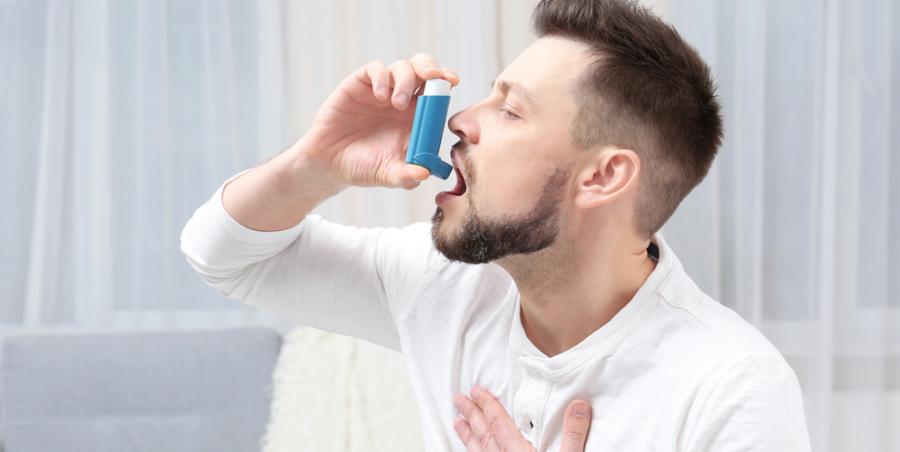
For individuals with asthma, it should be a prime example here of how important the administration of the CBD oil is given.
As would be expected, an inhalant or vape form of CBD would be counterintuitive to use, given the medical issue at hand.
The same can be said of individuals with allergies looking to alleviate their symptoms.
Because of the anti-inflammatory qualities of CBD oil, individuals have noted positive responses to the use of CBD oil as a means of alleviating asthmatic symptoms because of the immune response to the CBD oil.
CBD Oil for Bipolar Disorder

100% Organic CBD Oil
At Kryo, we’re passionate about the life-affirming properties of CBD—and we’re committed to delivering it in its purest possible form. Discover the wellness benefits of our meticulously sourced, thoughtfully produced CBD tinctures.
Find out more

Bipolar disorder is a moderately common mental health illness, also known as manic depression, is defined as a disorder that causes unexpected changes in an individual’s mood, energy, and ability to function.
Mood shifts are unexpected, unpredictable, and often highly intense moments of either euphoric joy or depression and moodiness.
Overall, many scientists have expressed concerns when it comes to the euphoria-inducing THC due to bipolar patients’ already present chemical imbalances.
That said, CBD oil users have reported a decrease in the symptoms of mania and depression and feeling a greater sense of balance and control.
Based off individual testimonies, it is possible that both THC and CBD have the effect of sedatives, hypnotics, anxiolytics, antidepressants, and antipsychotics.
Understanding Cancer and CBD Oil

CBD oil has been significantly noted for its ability to inhibit the symptoms of many forms of cancer, from easing pain, to instilling an appetite, curbing nausea, but some studies have even gone so far as to attest to CBD’s ability to fight cancer.
This was noted in a 2006 study over breast cancer tissue, which noted a significant limit to the growth of breast tumor cell lines.
Additionally, the same researchers also found that CBD was able to reduce the size of a tumor, as well as the metastatic tissue within the body.
And yet, most research doesn’t attest that the cancer can shrink and be fought by CBD. Instead, most researchers are in alignment on the fact CBD oil is able to significantly reduce the symptoms associated not just with cancer itself, but with treatments of cancer.
Additionally, further researchers have uncovered a link between preventative measures and the protection against the development of some tumor types as a result of CBD and THC.
There has been some targeted research on CBD and cancer which we will cover in more detail below.
CBD Oil for Lung Cancer

As the leading cause of cancer-related deaths in the U.S., a lung cancer prognosis can be a grim one.
While it is most often caused by smoking, smoking is not exclusively the only way to get the disease. Additionally, there are two forms – small cell lung cancer (think smokers) and non-small cell lung cancer. Symptoms here can include pain, nausea, difficulty breathing, fluid in the lungs, coughing blood, and can often spread to other parts of the body.
Although limited in access to knowledge and actual studies, one particular case study explored the implications suggested when the subject, an 81-year old man diagnosed with chronic obstructive pulmonary disease was given an x-ray and discovered to have masses in his lungs and lymph nodes. The subject refused treatment due to his age, but began taking his own dose of CBD oil, and within less than two years, the masses were significantly shrunk in size, revealed via his CT scans.
CBD Oil for Leukemia

Leukemia is a specific classification of cancer whereby the body’s blood forming tissues, blood marrow and white blood cells are attacked.
It is the most common cancer found in children, and is found to be one third of all children’s cancer diagnoses. It causes fatigue, weakness, weight loss, and easy bleeding and bruising.
In one such case study, a 14 year old girl with Leukemia was receiving treatment for her condition, when the family chose to try her on cannabidiol oil after having heard of the potential for CBd oil to shrink tumors and decrease cancers.
Different strains were tried on the child and it was documented that at times her blast cell counts increased, while at other times it decreased.
The study revealed that “three factors, namely frequency of dosing, amount given (therapeutic dosing) and the potency of the cannabis strains, were critical in determining response and disease control…it could not be determined which cannabinoid profiles constituted a ‘potent’ cannabis strain because the resin was not analyzed.”
So overall, although the results clearly need further research and potentially a larger sample, there is enough evidence to support that cannabidiol oil has the potential to combat Leukemia.
Understanding CBD Oil and the Effects on Social and Environmental Conditions

Aside from the multitude of diseases and illnesses that cannabidiol oil can combat, treat or heal, there are also a number of social and environmental conditions that also suggest evidence to solutions for certain conditions.
CBD Oil and Acne

Acne can be a challenging condition, because unlike many illnesses and diseases, it affects how one sees oneself, how the world sees them, and it is a difficult condition to hide in public.
As one of the most common skin disorders, the treatments for acne has undergone extensive research, as it is, those products have significant presence in the markets.
The effectiveness of CBD oil on acne was based off the notion that acne is in fact an inflammatory condition, and CBD oil has the ability to act as an anti-inflammatory.
CBD Oil and Insomnia
Studies show that as many as one in four Americans struggle with insomnia, which includes difficulties falling asleep and staying asleep at night.
The average adult needs around seven hours of sleep a night to best maintain mental functions and overall health and wellness.
Potentially one of the most prevalent uses of CBD oil for health and wellbeing is the use of it to target both insomnia and anxiety.
Though controlled studies are limited or still in progress and not yet fully conclusive, one study sought to prove some correlation, between the clinical application of cannabinoids and anxiety and sleep.
After observing 103 patients with both sleep and anxiety, the study showed that 79% of those with anxiety and 66% of those with sleep problems experienced relief and decreased symptoms after the first month alone.
CBD Oil and PTSD

PTSD is a condition caused when an individual experiences a traumatic event, and is common among returning soldiers and combat veterans.
Those with the condition can experience a multitude of issues depending on the severity and intensity of their own experience, like difficulties sleeping or interacting with society, paranoia, difficulties focusing, substance abuse, depression, anxiety, and others.
It can be challenging for these individuals as symptoms can be both long term or short term, and can even be triggered new events as reminders, for example, when fireworks go off during the 4th of July, some veterans can feel triggered with reminders of war bombings and shell droppings.
When applied to the effects of CBD oil usage, the responses of the cannabinoids and the CB1 and CB2 receptors, the effects on the emotional stability showed promise.
The use of CBD oil in PTSD patients revealed positive improvements in the decreased frequency of triggering thoughts of the trauma, social avoidance and isolation, and self-destructive behaviors.
One study administered showed a 75% reduction in PTSD symptoms by patients using cannabis, particularly.
CBD Oil and Anorexia

100% Organic CBD Oil
At Kryo, we’re passionate about the life-affirming properties of CBD—and we’re committed to delivering it in its purest possible form. Discover the wellness benefits of our meticulously sourced, thoughtfully produced CBD tinctures.
Find out more

Anorexia, also known as anorexia nervosa, is characterized by symptoms that include being underweight, experiencing intense weight loss, difficulties maintaining appropriate body weight, distorted body image, and an unhealthy depiction of food and eating.
Though it is more common with women, it can happen to any individual. Much of the time, individuals with this condition excessively self-monitor their caloric intake, and may or may not appear to look severely underweight. Anorexia is classified as a mental health condition, because of the association with body dysmorphic disorder.
Because of its ability to increase appetite as well as it’s demonstrated effects on stress and anxiety reduction, CBD oil has shown potential to help alleviate the symptoms of anorexia.
The ability to normalize and balance a patient’s emotions, alongside a mild increase in appetite, can help to encourage healthier habits and behaviors alongside emotional support.
Understanding CBD Oil and its Effects on Addiction

Addiction has been a particularly damaging and dangerous concern in the United States in both the past as well as current day.
USA Today reports that nearly 21 million Americans suffer from addiction, it costs the United States government over $4.4 billion dollars per year, and it often starts at a young age, and is increasing among younger children.
Substances range from alcohol, tobacco, opioid prescription drugs like Vicodin and Oxycontin, and illicit drugs like cocaine, heroine, methamphetamines, and more.
Considering the current opioid crisis, CBD oil has the potential to help alleviate some addictions as more and more people use it to help manage pain rather than seeking out prescriptions of Vicodin and others, but what about helping the actual addiction itself?
CBD Oil and Heroin Addiction

Heroine is a highly addictive illicit substance classified under the opioid addiction crisis. It is the last and often the most severe of the opioid addictions.
With a high abuse potential, it is also cheap and easy to access because of the spread of the addiction across the United States.
However, recent research has suggested the potential for CBD oil to help relieve and reduce the intensity of cravings for patients with a heroin addiction problems. Because of CBD oil’s ability to relieve anxiety, it also reduces the anxiety associated with needed the drug.
CBD Oil and Tobacco Addiction

Tobacco is one of the highest addiction problems in the United States, and is often consumed through the means of smoking.
Cigarette smoking is noted as being responsible for 30% of cancer-related deaths per year, and alone contributes to the 87% of lung cancer deaths associated with smoking.
Although cigarette use declined significantly since the sixties, tobacco use found a surging increase again with the prevalence of vaping products, classified as a ‘healthier’ form of smoking tobacco.
Although not all vaping devices utilize nicotine and tobacco, those with those two ingredients still contribute to the issue of addiction.
Recent studies have shown a strong link between inhaling CBD and the ability to quit smoking, which shows highly promising connections between quitting cigarette use and CBD oil.
In the study, the placebo group of smokers smoked the same amount of cigarettes in a week, while those treated with CBD inhalants reduced the number of cigarette use by 40%.
CBD Oil and Vicodin and Oxycontin (Prescribed Painkillers) Addiction
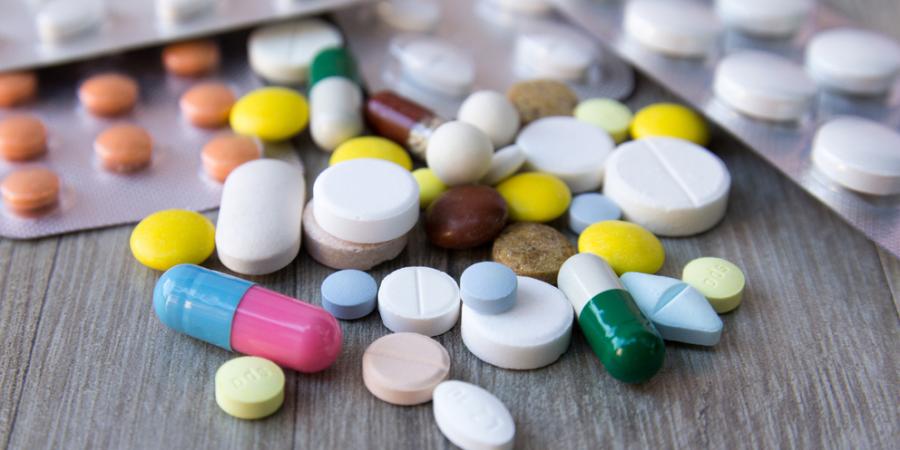
Two of the most commonly prescribed painkillers associated with addiction include vicodin and oxycontin, and the number of overdose deaths of opioids including these two were five times higher in 2017 than in 1999.
Individuals with addictions to prescribed painkillers can not only be helped by alleviating their pain itself, but can also help to alleviate their dependence on the substances, according to some of the most recent studies and research.
CBD oil can impact the CB1 and CB2 receptors which can help to relieve pain, addressing the need for opioids to be prescribed, but additionally, the impact of them on stress, anxiety, and cravings can also help individuals overcome their addiction to these painkillers.
CBD Oil and Alcohol Addiction

100% Organic CBD Oil
At Kryo, we’re passionate about the life-affirming properties of CBD—and we’re committed to delivering it in its purest possible form. Discover the wellness benefits of our meticulously sourced, thoughtfully produced CBD tinctures.
Find out more

The National Institute on Alcohol Abuse and Alcoholism reports that the issue of alcohol abuse is not only about the connections to alcoholism and dependency on it as a substance, but the growing use of heavy binge drinking, the age of abuse and how early it begins in youths, and alcohol use disorder.
With 88,000 deaths related to alcohol in the United States, it’s fast becoming a growing issue.
With CBD oil, research has indicated promising connections specifically with the relapse numbers of those with a history of alcohol abuse.
The most dangerous time for a former alcoholic is the potential for relapse, which is often high, but CBD oil helped to decrease vulnerability and anxiety as well as stress, often triggers that lead an individual back to alcohol.
Understanding CBD Oil and other Specific Conditions
In addition to addictions, disorders, and other illnesses, there are some additional medical conditions that CBD oil has had the potential to alleviate, relieve, and treat. Let’s look at some of them in more details.
CBD Oil and Alzheimer’s
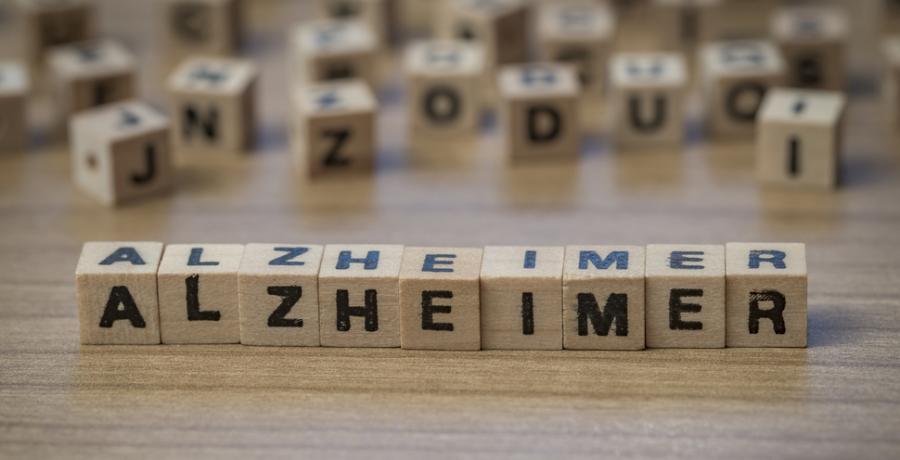
Alzheimer’s is a devastating and debilitating mental deterioration that is predominantly diagnosed in the elderly.
The National Institute on Health reports that Alzheimer’s disease slowly destroys an individual’s memory and thinking skills, whereby they forget how to do things and they forget their own family members. It most often appears around the mid-60’s.
There currently is no cure for Alzheimer’s disease.
Although CBD oil use does not in fact cure dementia, including Alzheimer’s, it has shown potential to help alleviate some of the symptoms of the disease.
It can make difficult symptoms manageable and easier on a day to day basis.
There have also been indications that cannabis can treat some of the primary causes of dementia, and Alzheimer’s in particular.
CBD Oil and Parkinson’s Disease

Parkinson’s Disease is a neurodegenerative disorder whereby an individual experiences tremors, rigid limbs, difficulties with balance and walking, and other motor functions.
It can also contribute to issues with depression, constipation, loss of smell, and apathy.
Often it is a slow deterioration of the body as an individual’s symptoms progressively worsen.
Though not specifically a cure, research has indicated positive attributes of CBD oil and its ability to alleviate the symptoms associated with Parkinson’s disease, including better quality of life, decreased tremors, and better sleep habits.
CBD Oil and Multiple Sclerosis
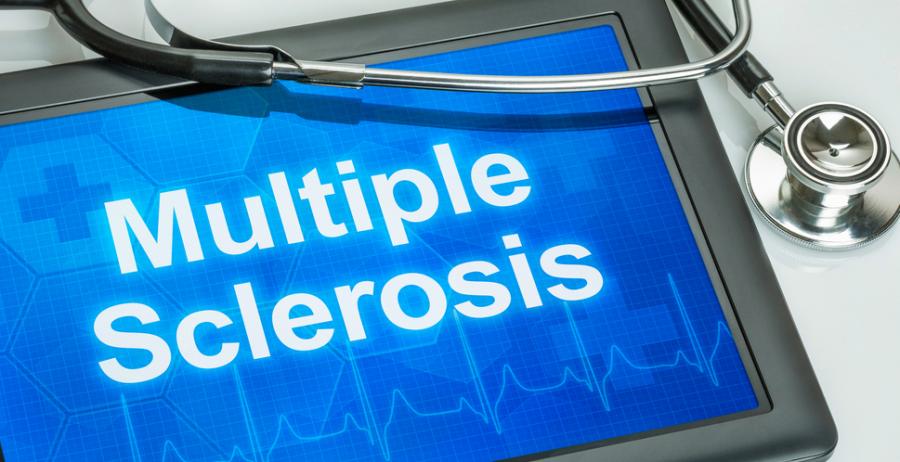
Multiple sclerosis, commonly referred to as MS, is also a degenerative disease that can be managed, though not cured.
This disabling disease is a degenerative condition that affects the central nervous system and interrupts the brain’s ability to communicate with one’s body.
It most commonly affects women and symptoms begin to show between the ages of twenty to fifty.
Although, like with most cannabidiol-related treatments, research is still in an incipient phase, the use of cannabidiol with individuals who have MS has become increasingly popular because of an individual’s personal experiences with it and it’s ability to ease symptoms of multiple sclerosis.
Because of CBD’s reported ability to alleviate pain and inflammation, the effects on other symptoms have been promising in the areas of reducing pain, fatigue and depression in individuals with MS.
CBD Oil and Depression and Anxiety

100% Organic CBD Oil
At Kryo, we’re passionate about the life-affirming properties of CBD—and we’re committed to delivering it in its purest possible form. Discover the wellness benefits of our meticulously sourced, thoughtfully produced CBD tinctures.
Find out more

Depression and anxiety are two highly common mental health conditions, which affect millions of people on a daily basis.
Treatment for both of these conditions exist, but in particular, the connections between CBD oil and depression and anxiety have shown promising results.
Because of the cannabidiol’s ability to increase and react with the body’s neuroreceptors, the potential for anti-depressant qualities as well as the alleviation of stress and anxiety show progress in understanding how CBD oil can be used to combat both depression and anxiety diagnoses in individuals.
CBD Oil and Obesity

Although the more common association of CBD oil use is more alongside weight gain and increasing appetites in individuals with various conditions, recent studies have revealed there is actually also potential for cannabidiol to help be an anti-obesity treatment in connection to the body’s CB1 receptors.
Summary
As more and more research is conducted on the effects, impact and role of cannabidiol oil and the human body, the potential for the compound simply becomes greater.
Cannabidiol oil, or CBD oil, is an extract from the hemp plant, which is the cousin of the marijuana plant.
After being farmed and harvested as hemp, the plant goes through an extraction process that separates the oil, and the oil is used for a wide variety of purposes.
Although it originates from a similar varietal of plant as marijuana, CBD oil is not like marijuana because it lacks the psychoactive compound of marijuana, which is the THC. THC produces the euphoric high associated with marijuana, while CBD oil contains no psychoactive compounds.
As it comes from the hemp plant and is often incorrectly associated with the illegal use of marijuana, it can be a little confusing as to the legality of CBD use.
Although marijuana use is illegal on the federal level, several states have legalized its use for both recreational and medicinal purposes.
CBD oil on the other hand, was legalized with the 2018 Farm Act, which legalized hemp with a THC level lower than .3%. So, while CBD oil derived from hemp with less than .3% is legal, it can be risky if one cannot prove the oil has less than .3% THC.
Cannabidiol oil works in the human body because of its ability to bind to or alter the body’s ability to produce its own cannabinoids within the body.
The main receptors in the body impacted by CBD oil are the CB1 and CB2 receptors. CB1 receptors deal with coordination, emotions, moods, thoughts, memories, and appetite, while CB2 receptors deal with inflammation, pain, digestion, arthritis, allergies, and autoimmune disorders.
Because of these two receptors and the plethora of functions they deal with, use of cannabidiol oil is connected to a wealth of treatments, cures, and ailments for its healing properties.
The healing and treatment properties address many different chronic conditions, including pain, diabetes, cardiovascular diseases, epilepsy, ALS, lupus, Crohn’s Disease, glaucoma, Huntington’s Disease, Asthma, and bipolar disorder.
Though not a cure, CBD oil has also shown strong connections between cancer treatment and symptom management.
With lung cancer, leukemia, and other cancers, CBD oil showed progress in decreasing the size of tumors, helping promote appetites and fatigue in those undergoing cancer treatment, and helping to strengthen the body to continue fighting.
Other conditions have also shown potential healing properties, including acne, insomnia, PTSD, and anorexia.
With promoting the appetite and weight gain, the ability to decrease stress and anxiety levels, helping to promote sleeping habits and even aiding in treating depression resulting from conditions like PTSD, the use of CBD oil is used to help promote healthier habits in these conditions and bring emotional balance and a less-stressed individual.
Addiction in the United States in particular has been a widely discussed topic, as millions of Americans are affected directly and indirectly on a daily basis.
Because of CBD oil’s suggested ability to alleviate stress and anxiety, as well as depression, research has suggested that these three areas can also help aid in breaking addictions to various substances.
When an individual relapses, these are often some of the contributing factors, suggesting that CBD oil can help break those addictions.
Lastly, degenerative medical conditions, like Alzheimer’s, Parkinson’s, and multiple sclerosis, have shown evidence of CBD oil’s ability to treat certain key symptoms that make life more challenging for individuals and families combating these incurable illnesses.
Conditions like depression, anxiety, and obesity have also recently shown significant progress in understanding how the body responds positively to the use of CBD oil.
Though not a miracle cure-all, the vast areas of the body that are positively impacted by the use of cannabidiol oil mean that it can help provide a significant amount of aid to the human body for a variety of different conditions and issues.
Though research is still in the early stages of what exactly and to what extent it can be used to help cure or treat those conditions, preliminary results are promising.





